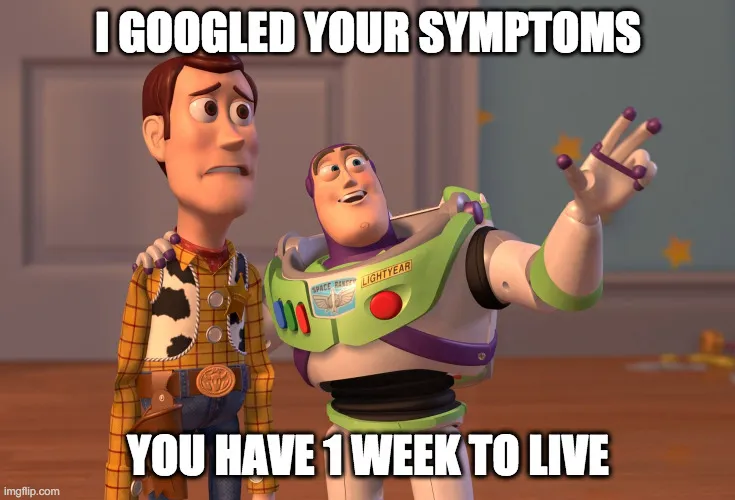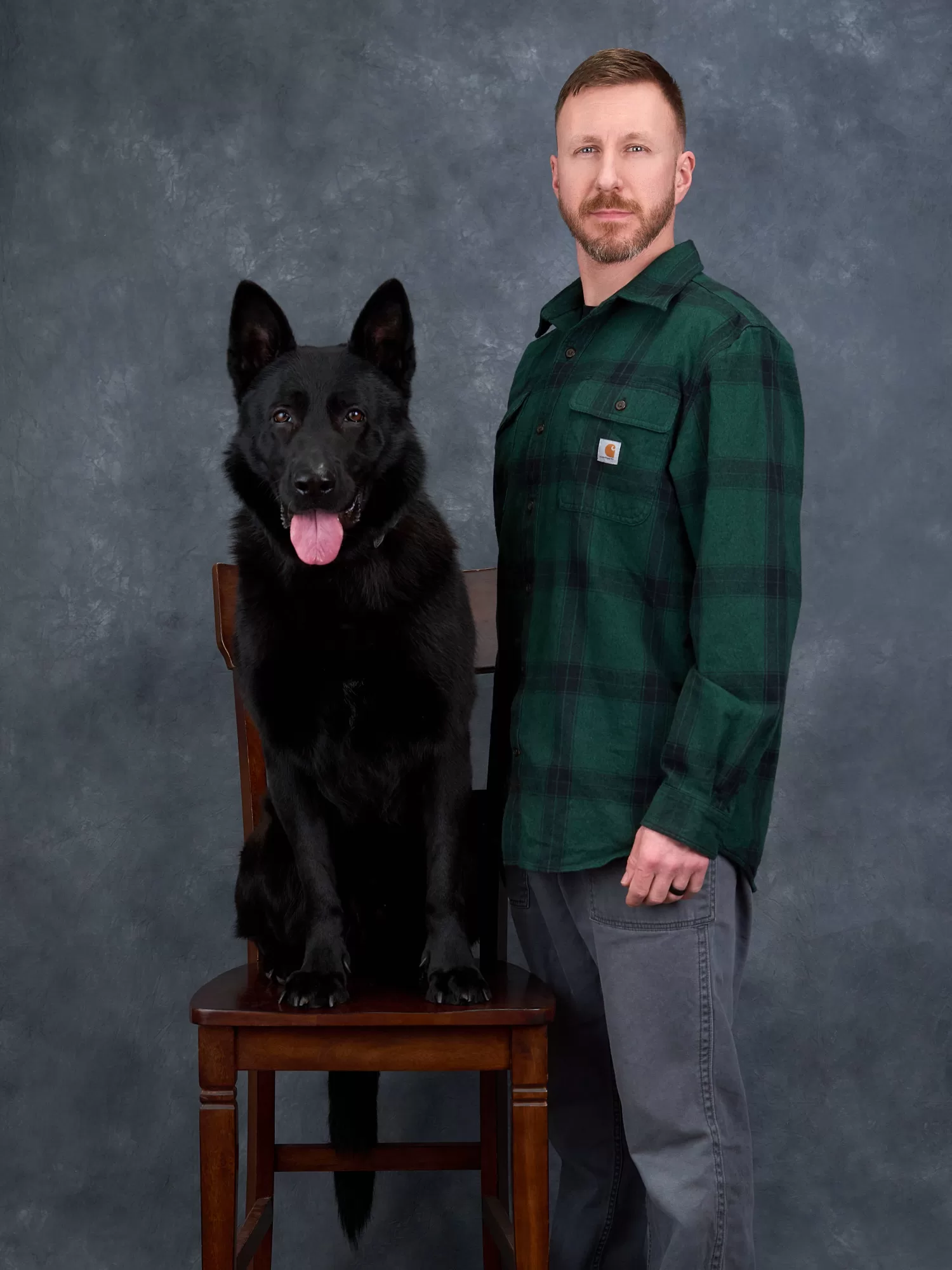WARNING!

The following post is MY OPINION and a long one at that. If you choose to read it, thank you. If you disagree, that’s cool, tell me all about it in the comments at the bottom of the page so readers from all social media platforms can join the conversation.
*If you take medical advice from the internet, you do so at your own peril. Talk to your primary care provider about anything before you start it.
Please take the time to explore the many hyperlinks found throughout this article, it’s worth the time investment. Again, IMO.
PTSD
“Post-traumatic stress disorder (PTSD) is a mental and behavioral disorder that can develop because of exposure to a traumatic event, such as sexual assault, warfare, traffic collisions, child abuse, domestic violence, or other threats on a person’s life. Symptoms may include disturbing thoughts, feelings, or dreams related to the events, mental or physical distress to trauma-related cues, attempts to avoid trauma-related cues, alterations in the way a person thinks and feels, and an increase in the fight-or-flight response.” –Wikipedia
Mental Grenade respectfully acknowledges that all persons can have PTSD and it is not specific to Veterans but due to the nature of this blog, we are addressing it from that point of view.
The Simple Life
I had an excellent conversation the other week with a former Corpsman. We discussed the desire to return to the “simple life.”
Life on deployment was quite simple. There were fewer choices to be made each day, and they ALL mattered. Here in America, we are smashed over the head daily with thousands of petty, insignificant decisions that all impinge on our sense of peace.
PTSD Paradox
I think in the past I’ve referenced what I call the “PTSD paradox.” Simply stated:
“When in war, the warrior’s mind is at peace. When in peace, that mind is at war.”
I thought about calling it the “warrior’s paradox,” but a well-adjusted warrior can be at peace off the battlefield.
This isn’t to negate the fact that, often, “modern” or “first world” life is a travesty to a seasoned warrior. Once a person has tasted how simple, how poignant life can be, where almost every decision is of existential consequence, living any other way will always create some discontent.
In combat, people matter to each other. Last words could be spoken at any moment; bonds of fidelity are fulfilled unto death. The impact of decisions made moment by moment changes lives. It’s difficult to express to someone who has never been there how this RADICALLY alters your mind and outlook for the rest of your life. Many changes that occur during a deployment are not attributable to PTSD. Even if the service member does not “experience trauma,” the way they think about and see life will have changed drastically. Permanently.
A warrior in their late teens or early twenties handles a budget or inventory in excess of some CEOs while simultaneously leading (not just ordering or supervising) men/women into combat. (I define combat loosely, for there are many who have seen and done things that have forever changed them that served in supporting roles: in the air, on land, and at or under the sea; first responders, etc.) This happens while the brain is still developing. Nothing will ever look, feel, smell, sound, or taste the same after this.
Thriving with use of adaptations in crap environments
Some coping mechanisms that work and are acceptable in a theatre of war are seen as dysfunctional in “normal” society. The separation from family allows us to bond more deeply with our brothers/sisters in combat. The need to protect our psyche allows us to compartmentalize deeply disturbing things and delay the effects of the trauma. Dark humor is used to deal with the worst of environments and situations, creating comedy from the tragedy of reality. Emotion can be a liability and so we stuff it down and only allow ourselves to be angry.
“From a survival perspective, we defend ourselves when we retaliate and make other people fear us. Anger guards us when someone wants to hurt us. It gives us the strength and aggression to help us overcome a stronger enemy. In day-to-day situations, anger serves as a positive force to motivate us to stand up for ourselves and creatively find solutions to the challenges we face.” –GoodTherapy.org
Misplaced use of adaptation in “normal” American life
Upon returning to the states, post deployment and perhaps years after separation from the armed services, a warrior may shock coworkers or family with the casual use of battlefield behavior in a benign environment. There could be many reasons why it happens but we all know it does.
“However, changes to the functional connections between the midbrain and the prefrontal cortex persisted, suggesting combat stress may have long-lasting effects on cognitive brain circuitry.”
–Centre for Traumatic Stress Studies
Command of the roadway in Iraq leads to excess speed and road rage in the states. Swift violence of action to repel an ambush becomes an emotionally charged, explosive situation any time we feel like we’re being attacked or something we deem valuable is under attack. Continuing to use anger as a motivator instead of unlocking your other emotions, leaves you stunted, unable to name what you really feel and basically only having two responses: nothing or angry.
“It is what it is.” Sometimes we have to take the worst life has to offer and just swallow. But we don’t always have to; it’s not always what we think it is.
You experience trauma- you can’t change it.
The trauma grieves you- you can’t change it.
You relive the memory, dream about it, think about it everyday. – you CAN change it. Do you want to?
You drink, smoke, or shoot up to numb the pain and escape the sorrow of the experience and to exist in an altered state- you CAN and should change it.
You isolate because you don’t trust anyone, sometimes not even yourself. -you need to change this. Humans are social at their core and without community you are going to torture yourself.
You sabotage your relationships, blame yourself for a friend’s death, and believe you don’t deserve to be happy because it would dishonor their memory.- you CAN and must change it.
You’ll never be able to function in normal society again. – this is YOUR CHOICE.
There’s nothing wrong with thinking about your lost teammate on a daily basis. If, however, thinking of them negatively impacts your day and the way you interact with those around you, there is something wrong. When a traumatic experience hijacks your life, I believe it has progressed from stress to disorder.
There’s this constant discussion about PTS vs PTSD. Yes, post traumatic stress is a natural response to the abnormal experience the person survived. This stress initiates certain defense mechanisms to help the person survive and cope in the short term.
“A disorder is a disturbance in physical or mental health or functions, a lack of order or regular arrangement; confusion.”
https://www.dictionary.com/browse/disorder
There are four different types of PTSD symptoms:
- Re-living
- Avoidance
- Arousal and reactivity
- Cognition and mood symptoms
*Click HERE to read about them.*
There is a point where it’s no longer that normal response. It begins to affect almost every part of your life and never resolves. This is where I believe it crosses over into disorder. Having PTSD is NOT a death sentence. True, there is no “cure” but there IS effective treatment. The goal should be to have control of your thoughts and actions. We can’t always control how we feel but we can choose to think first, then respond rather than performing an immediate reaction that isn’t applicable for the current scenario or environment.
Mindset
Warriors don’t think about things the same way after time in combat. Yes, we are always evolving and changing our perceptions of the world based on increased understanding and cumulative experiences. The rapid, radical changes that occur in active combat, especially sustain periods of contact, cause short and long term issues, and vary in the difficulty of repair or reintegration.
“I’m fine the way I am! And F you very much for thinking I need to change.”
I get the sentiment, I really do, but if you have to justify your actions or get defensive, you should take some time for self-reflection. Everyone is in need of growth and change every day.
Imagine if you never grew emotionally past the age of 8. You’re now 35 or so and a veteran of the Global War On Terror. Your war time coping mechanisms are executed with an emotional age decades younger and you’re struggling to understand why your relationships are falling apart. It’s easy to blame others for not seeing things your way. When we are younger, the world seems to revolve around us individually. It takes time and growth: mentally, emotionally, and socially to learn that there is a balance to be struck between our needs and that of the community we find ourselves a part of.
Why 8 years old? It’s arbitrary, but an older study shows that over 35% of DOD personnel have experienced some kind of trauma prior to service. Childhood trauma can arrest emotional development and severely inhibit your ability to process your wartime experience. If you can’t think about things clearly and maturely, your whole life will suffer. You will also be unlikely to succeed in therapy regarding adult issues if you haven’t resolved your childhood trauma prior.
I’ve just gotta keep busy…
This is what people say when they’re afraid of their own thoughts. “…When in peace, that mind is at war.”
Hobbies are great and can qualify as alternative therapy, used in addition to legitimate trauma therapy. If used on their own, it’s just a band-aid on a sucking chest wound, an avoidance technique.
There’s gotta be a process and steps to get through it.
Maybe it goes something like this?
1. Get clean and sober; you can’t deal with your trauma if you’re not in your right mind.
2. Resolve within yourself that trauma therapy is difficult but worth it. If you don’t believe and invest in the process, as soon as it gets uncomfortable you’ll cut and run. You can’t go to the gym and get ripped in one work out. You have to push yourself to get stronger! It’s the same mentally. Don’t settle for what you’ve accepted as your new normal.
3. Find the right therapist, it may take time. No progress will be made in a contemptuous relationship. Try, try again. Try different types of therapy. Here’s a FEW.
4. Find alternative therapy to supplement more traditional methods. Do this therapy with other vets if possible.
5. Find a community and stay on comms. Isolation is the enemy of restoration. You’re going to need their encouragement and perspective as you turn your struggle into strength.
6. Embrace the fact that the best way to honor our fallen is to live our best lives. Their names don’t disappear if you get better. Their memories live on and you’ll be in a better state of mind to tell more people about who they were and what they did.
Spiritual Healing
You’ve addressed the physical, mental, and emotional issues but you would be missing the core if you didn’t deal with spiritual healing. Besides PTSD, shame and moral injury jam a person up. This takes many forms for different people. Finding forgiveness for yourself and others and releasing the hate that you may be holding onto will be the foundation on which all other healing rests. All your work will be temporary gains if you’re still not forgiven, still not forgiving, and holding onto hate and blaming others.
Things happened that were out of our control. I don’t know if they happened by chance, happened for a reason, or some mix of the two. Nothing positive comes from dwelling on the “ifs” and “why.”

While I’m kicking the hornet’s nest, I’ll briefly mention marijuana. There are possible benefits from its controlled consumption. Please use caution!
I’ve had several friends who found some relief and then decided if a little was good then a lot should be better. The resulting fall out in their life was sad to watch and those relationships were ultimately never the same. Talk to your healthcare provider about possible medication interaction and treat it like the drug it is. THC should be introduced in small amounts as needed and used sparingly. If you “need” it constantly then ask yourself if it is treatment or dependency. That’s on you…
Get help but don’t keep it to yourself.
Get others involved in your recovery. Support through communication and community is key. Those close to you, that you trust enough to be a part of your process, can keep you accountable. Accountability keeps us on track when the finite resource of willpower runs out.
https://www.everydayhealth.com/ptsd/guide/resources/ -this is great place to start looking for help.
If you are in crisis call: 988
https://suicidepreventionlifeline.org/help-yourself/veterans/
https://www.mentalhealth.va.gov/ptsd/index.asp
https://stopone.info – this website is run by a trusted friend and advocate for veterans.
https://www.colleaga.org/article/list-ptsd-organizations-and-resources
I care about you.
I have struggled with PTSD for years. Through many types of therapy, traditional and alternative, medication, and an adjusted lifestyle, I am a functioning member of society. The level of functionality varies day to day but I don’t profess to be a saint. Be safe out there. Get the help you need.
-Drew OUT!

Drew founded Mental Grenade Jan 2020. He is a follower of Jesus Christ, a medically retired Marine, EOD Tech, husband, father, writer, mountain biker, photographer, facilitator, and fly-fisherman. He seeks to bridge the civilian – military divide and bring hope through honest communication about difficult issues.
These Veteran stories of struggle, adventure, and post traumatic growth need to be heard!
Join the cause to de-stigmatize mental health issues.
Please SUBSCRIBE, share our website with friends / co-workers, and support us by donation or at the STORE.
These Veteran stories of struggle, adventure, and post traumatic growth need to be heard!
Join the cause to de-stigmatize mental health issues.
Please SUBSCRIBE, share our website with friends / co-workers, and support us by donation or at the STORE.
Teirney M.
May 11, 2022 21:59Just wandered through the posts by different authors and wanted to say thank you for this! I have echoes of my trauma that never quite leave, and mostly in the form of where I am doing wrong, what have I messed up today or did I do enough to earn my rest? Is there more I should be doing? I think trauma permanently , whether childhood or adult, changes the way we see ourselves and our worth. A distorted mirror that while can be understood as distorted, still occasionally reflects our defects as we perceive them. So when I am tired, or I’ve had more stressors than I am emotionally capable of handling that day, I will fall into default mode. But I remember that as faulted as I am, The Lord trusted me with this mission and gave me the tools to get through it. I remind myself He is my strength and I do not have to carry it alone.
Drew
October 26, 2022 14:07Thanks for reading. I would love it if you considered writing something for us. You have insight, a story to tell. I perspective I don’t have, an audience I can’t reach.
Cathy Coffman
April 29, 2022 04:01So well written and so well researched. Will be sharing with friends that can relate. .
Drew
October 26, 2022 14:08Thank you for your support!
Dick Ford
April 28, 2022 11:30Well done Marine. Very useful information. I will be circulating this in a few ways and praying that those that need to get the point begin to take steps to make their lives better and in most cases the lives of the people that care about them. This article does not just have the potential to help the person with PTSD but it can be useful to those people that care. T
hey often do not help because they do not now what to do, or do harm because they do not know what not to do.
E
April 28, 2022 09:20I think I needed this today. I’ve been struggling, feeling down and worthless and guilty. It’s hard to read but important to remember that because I’ve been doing almost 10 years of therapy I have a tool box of things to help me out.
Drew
April 28, 2022 12:39I’ve had a long road as well. Mental health is the marathon of a lifetime. Keep going, keep working. Even after the major risk factors have been reduced, the echos of trauma last a lifetime; the battle never ends. Find allies in the fight who can speak against the feelings of worthlessness! You have worth, value, and are loved.
Scott
April 29, 2022 18:45Good piece brother!
Dan
April 28, 2022 08:02Well said